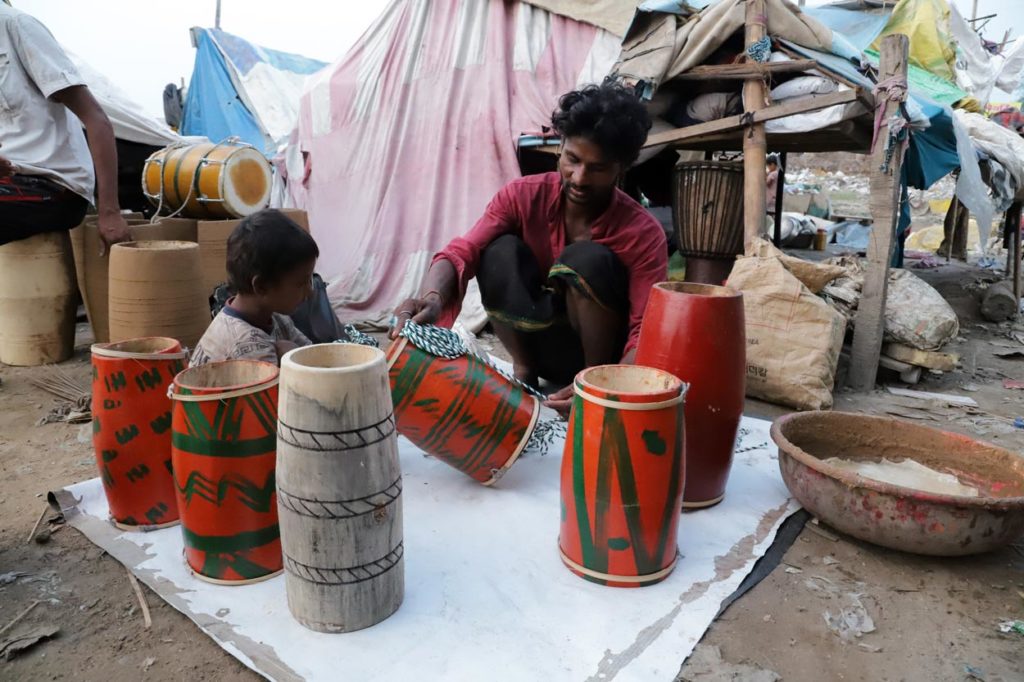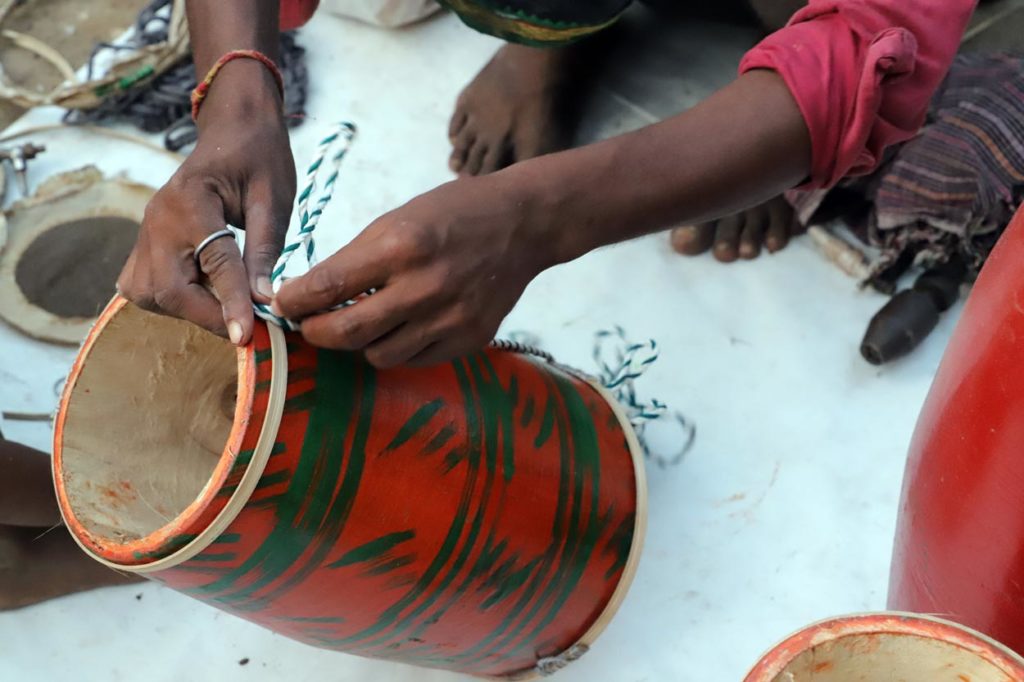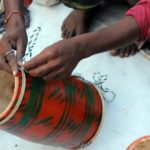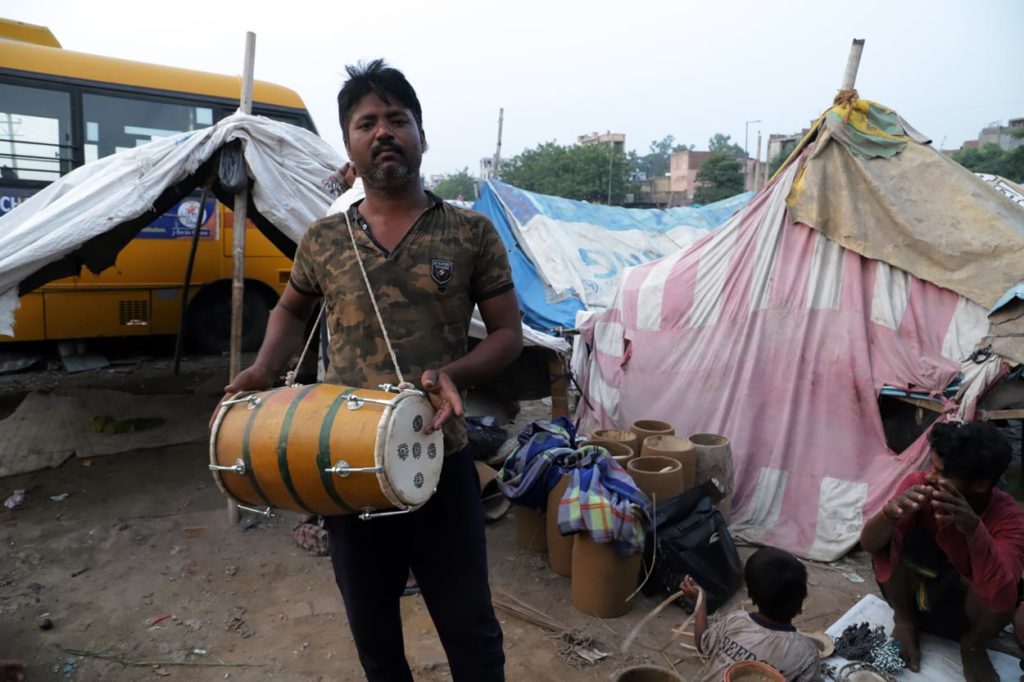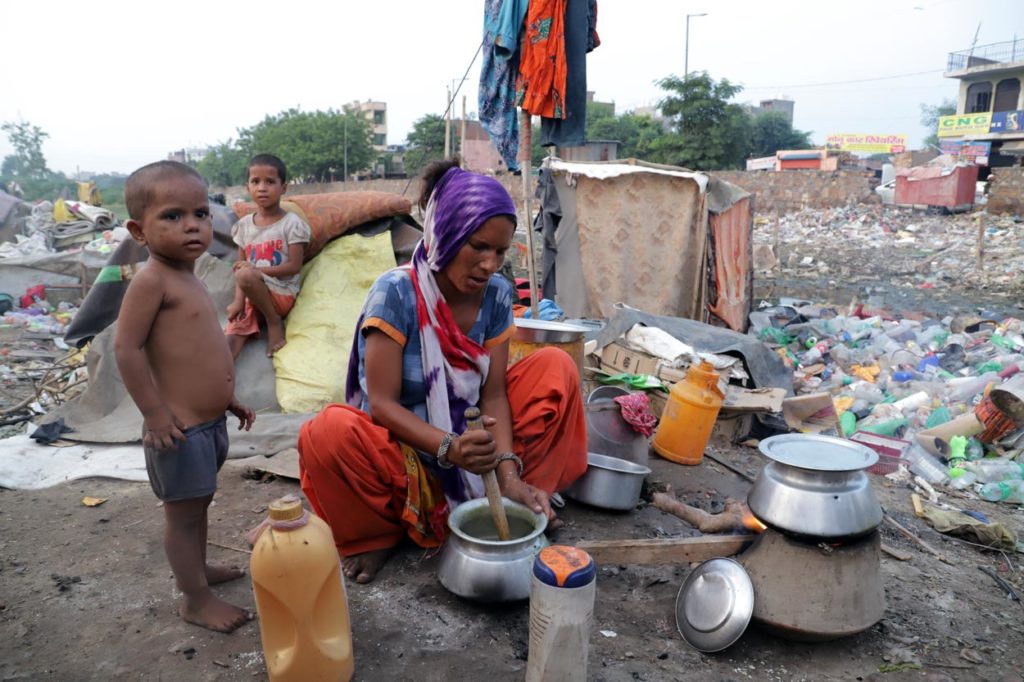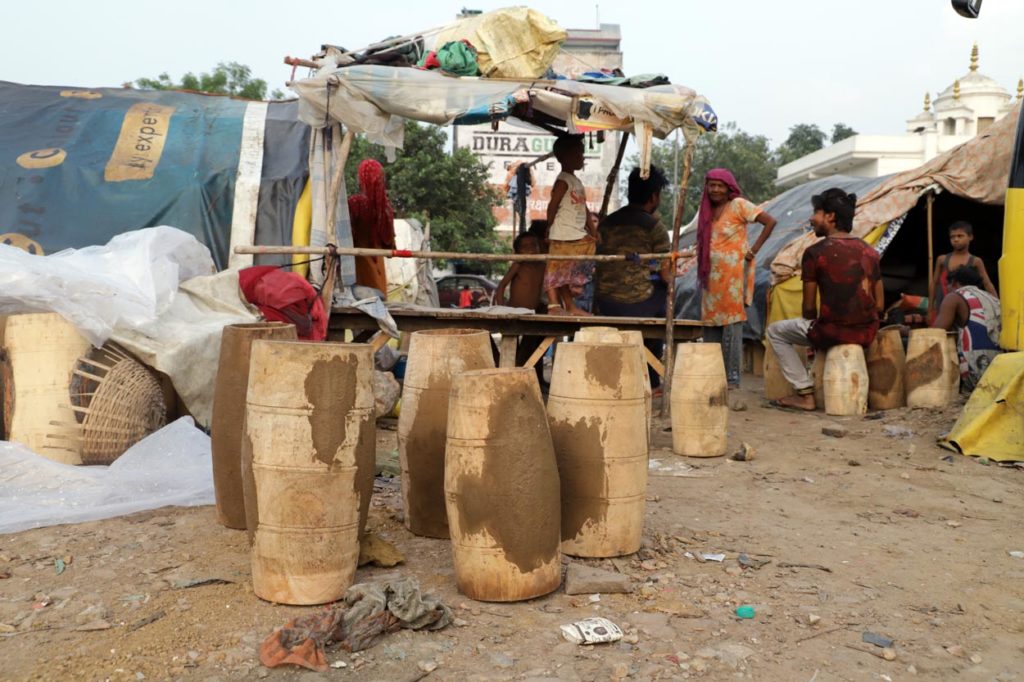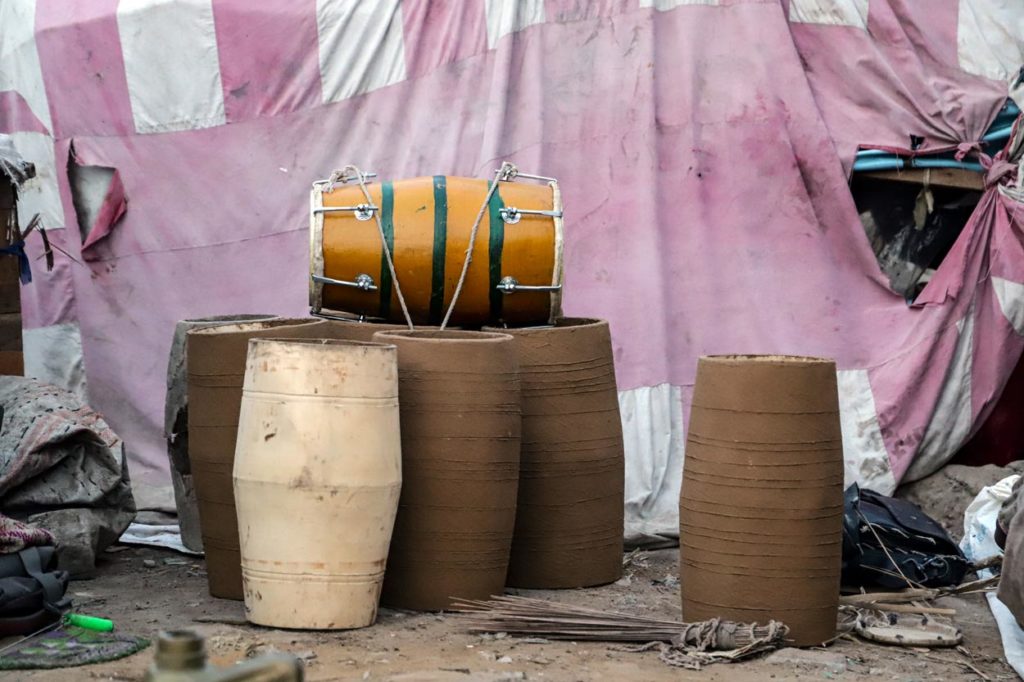Delhi’s drum makers abandon art for rag picking during pandemic
“How are we going to sell anything if they don’t even allow public celebrations of any festivals. Navratri is here but they are not allowing any one to celebrate it. If people don’t participate in festivities how are people like us going to survive? This has traditionally been the busiest period for us with several festivals and weddings coming up. Every year there were numerous fairs, but this year it has all come to a halt,’’ says Ghulam, a 65-year-old dhol or drum maker who lives with his family near Badarpur in New Delhi.
He has been making and selling various kinds of drums, in all sizes for generations. Though they live in a cluster of about 20 huts, sited right in the middle of a heap of waste, with garbage strewn all around. They and their fellow drum makers hail from villages near Bareilly in Uttar Pradesh, about 275 km east of the national capital.
It was in the search of a better life that Ghulam moved to New Delhi from his village about 15 years ago and as he knew little besides his family’s traditional business of making drums, he started that in New Delhi, too. “Making dholaks was something that I learnt from my forefathers. I have been making dholaks for the past 60 years. On an average, I used to sell about 60 dholaks every month. Even though we did not make a lot of money on each drum, it was only about INR 50, but on the whole, we used to earn about INR 3000 every month through the sales. Often, I would carry as many of them on my back as I could. I used to move around in different parts of the city and sometimes in the key markets of New Delhi in order to sell them. Sometimes I would sell one, sometimes two-three in a day. Yet, we were able to manage, providing for my family of 7 with that,’’ a nostalgic Ghulam tells Media India Group.
But the pandemic has put paid to that life, Ghulam says. “Things have completely changed now. Our business has completely shut off. Every year during Navratri we used to sell 40-50 dholaks. However, this year we could sell not even one. There have been no buyers. Moreover, our margins are very thin on each drum. We spend about INR 200 on making each drum and then we can spend upto INR 50 on transport costs in order to sell it. Like yesterday, my husband was out for the entire day to sell three drums, but he could not sell even one and spent INR 40 just on transport, without earning even a fraction of that. Now, it looks like it is upto our destiny,’’ says Nazara, another drum maker who lives next door.
She adds that faced with starvation, the community had to quickly change tacks and adopt another profession so that they could make some money at least with which they could survive. They have switched to rag picking as this is the sole opportunity to work even four months after the lockdown was first eased. It is not a choice that they are either comfortable with or proud of. “The pandemic has forced us to forget our talent and to choose a profession that has no dignity in it. When we had no hope then we started picking the rags. At a time when every government is talking of the crucial need for hygiene and health and practically everyone around us is very bothered about keeping hygiene, we have no option but to go and sift through heaps of garbage and hunt for something useful, something recyclable that we can sell. We are scared to die of poverty. We collect glass bottles and sell it for INR 5 per kg,” says 35-year-old Nazara.
Ghulam says that since the lockdown has been eased in New Delhi, he has begun repairing and cleaning the drums that they made but had not managed to sell so far. He is hoping that as the festivities come closer, there would be an uptick in demand for his drums.

